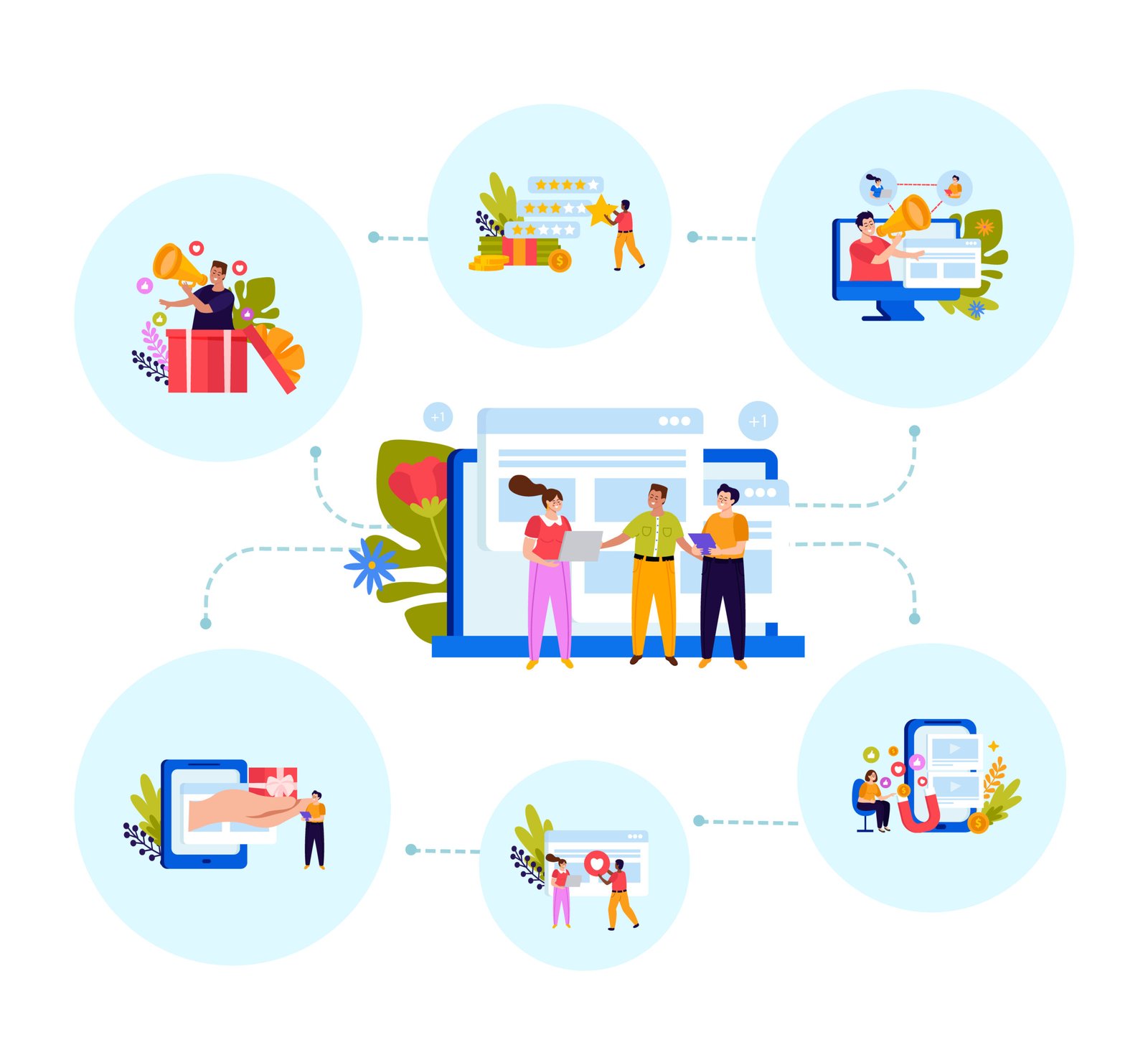Digital transformation is no longer a buzzword—it’s a necessity for businesses looking to thrive in the ever-evolving digital landscape. Marketplace app development has become a cornerstone of this transformation, providing platforms that seamlessly connect buyers and sellers, streamline operations, and enhance customer experiences. Whether you’re a startup or an established enterprise, investing in marketplace app development is pivotal for staying competitive. Here’s why marketplace apps play a crucial role in driving digital transformation.
Enabling Seamless Connectivity in a Digital-First World
The digital era demands instant connectivity, and marketplace apps bridge the gap between users and services in a way that traditional models cannot. These apps enable businesses to:
- Expand Reach: Marketplace apps transcend geographical boundaries, allowing businesses to connect with a global audience.
- 24/7 Availability: Unlike brick-and-mortar establishments, marketplace apps ensure that users can access products and services anytime, enhancing convenience.
For example, platforms like Amazon and Alibaba have revolutionized global commerce by connecting millions of buyers and sellers, making them indispensable in today’s economy.
Enhancing User Experiences with Personalization
One of the hallmarks of digital transformation is delivering personalized experiences to users. Marketplace app development leverages cutting-edge technologies like artificial intelligence (AI) and machine learning (ML) to:
- Recommend Products or Services: AI-powered algorithms analyze user behavior to suggest items they’re likely to purchase.
- Streamline Navigation: Personalized interfaces and search functionalities make browsing intuitive and efficient.
By tailoring experiences, businesses not only increase user satisfaction but also foster loyalty and drive revenue.
Revolutionizing Business Models with Flexibility
Marketplace apps allow businesses to embrace new and innovative models:
- Peer-to-Peer (P2P): Platforms like Airbnb enable individuals to share resources, disrupting traditional industries.
- Subscription-Based Models: Apps like TaskRabbit offer subscription plans, providing users with regular access to services while ensuring recurring revenue.
- Freemium Models: Many marketplace apps provide basic services for free and charge for premium features, attracting a broad user base.
This adaptability empowers businesses to experiment and scale in a rapidly changing market.
Driving Operational Efficiency
Marketplace app development is a catalyst for streamlining operations, reducing costs, and boosting efficiency. By automating various processes, such as inventory management, payments, and customer support, marketplace apps:
- Minimize Manual Efforts: Automation reduces human errors and accelerates operations.
- Enhance Transparency: Features like order tracking and transaction histories provide clarity to users and businesses alike.
- Optimize Resource Allocation: Businesses can allocate resources more effectively by relying on data-driven insights.
Harnessing Data for Strategic Growth
Digital transformation thrives on data, and marketplace apps are a treasure trove of valuable insights. Through analytics, businesses can:
- Understand User Behavior: Track preferences, purchasing patterns, and engagement metrics.
- Forecast Trends: Predict future demands and adapt offerings accordingly.
- Enhance Decision-Making: Data-driven strategies ensure that business decisions align with market needs.
Companies like eBay and Etsy rely heavily on analytics to refine their operations and offer better experiences to their users.
Encouraging Innovation with Emerging Technologies
Marketplace app development incorporates technologies that define digital transformation. Some of the key advancements include:
Blockchain
Blockchain enhances marketplace apps by ensuring secure and transparent transactions. Smart contracts can automate agreements between buyers and sellers, fostering trust.
Artificial Intelligence (AI)
AI powers chatbots, predictive analytics, and intelligent matchmaking, improving the overall efficiency of marketplace apps.
Augmented Reality (AR)
AR is transforming how users interact with products. For instance, users can virtually try on clothes or visualize furniture in their homes, enhancing the buying experience.
These technologies not only elevate user experiences but also position businesses as innovative leaders in their industries.
Enabling Scalability and Growth
Marketplace apps are inherently scalable, making them a vital tool for businesses aiming for growth. By investing in marketplace app development, businesses can:
- Expand Offerings: Easily introduce new categories or services.
- Handle Increased Demand: Cloud-based architectures allow platforms to accommodate growing user bases without compromising performance.
- Enter New Markets: Multilingual and multicurrency features enable businesses to reach diverse audiences.
This scalability ensures that businesses can adapt to changes in demand and continue thriving in competitive markets.
Empowering Small and Medium Enterprises (SMEs)
Digital transformation isn’t exclusive to large corporations. Marketplace app development is democratizing access to the digital economy for SMEs by:
- Reducing Entry Barriers: Affordable marketplace solutions enable small businesses to compete with larger players.
- Providing Access to Tools: Features like inventory management and digital marketing tools empower SMEs to operate efficiently.
- Connecting with Customers: Direct communication channels foster stronger relationships with customers.
Supporting Sustainability Goals
Marketplace apps can also drive sustainability efforts, a growing focus in digital transformation strategies. By promoting:
- Shared Economies: Platforms like UberPool and Lime reduce environmental footprints by encouraging resource sharing.
- Ethical Sourcing: Apps like Fair Trade advocate for products that align with ethical and environmental standards.
- Waste Reduction: Marketplace apps help minimize waste by connecting surplus goods with buyers.
Preparing for the Future of Commerce
The digital marketplace is evolving, with trends such as hyper-personalization, voice commerce, and decentralized platforms gaining traction. By investing in marketplace app development, businesses can:
- Stay Ahead of Trends: Continuously innovate to meet evolving user expectations.
- Build Brand Loyalty: Offer unmatched convenience and value to users.
- Ensure Longevity: Adapt to future technological advancements and market shifts.
Conclusion
Marketplace app development is at the heart of digital transformation, enabling businesses to adapt, innovate, and grow in a rapidly changing world. By leveraging cutting-edge technologies, enhancing user experiences, and embracing scalable models, marketplace apps empower businesses to stay competitive and relevant.
As the demand for digital solutions continues to rise, investing in marketplace app development isn’t just a smart move—it’s essential for long-term success. Whether you’re looking to build a thriving platform or enhance an existing one, now is the time to embrace this transformative journey.
